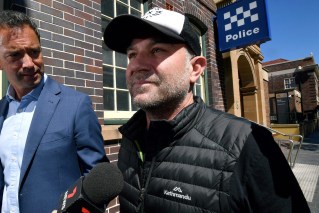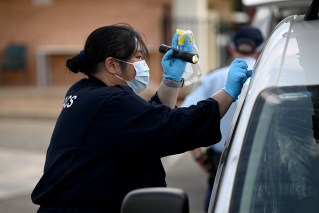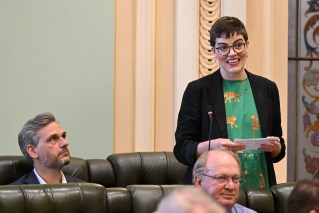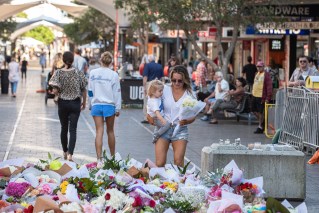Produce left to rot because pickers have nowhere to stay
With nowhere for working backpackers to stay as hostels and caravan parks close due to coronavirus, there are warnings about the supply of winter fruit and vegetables in the coming months.
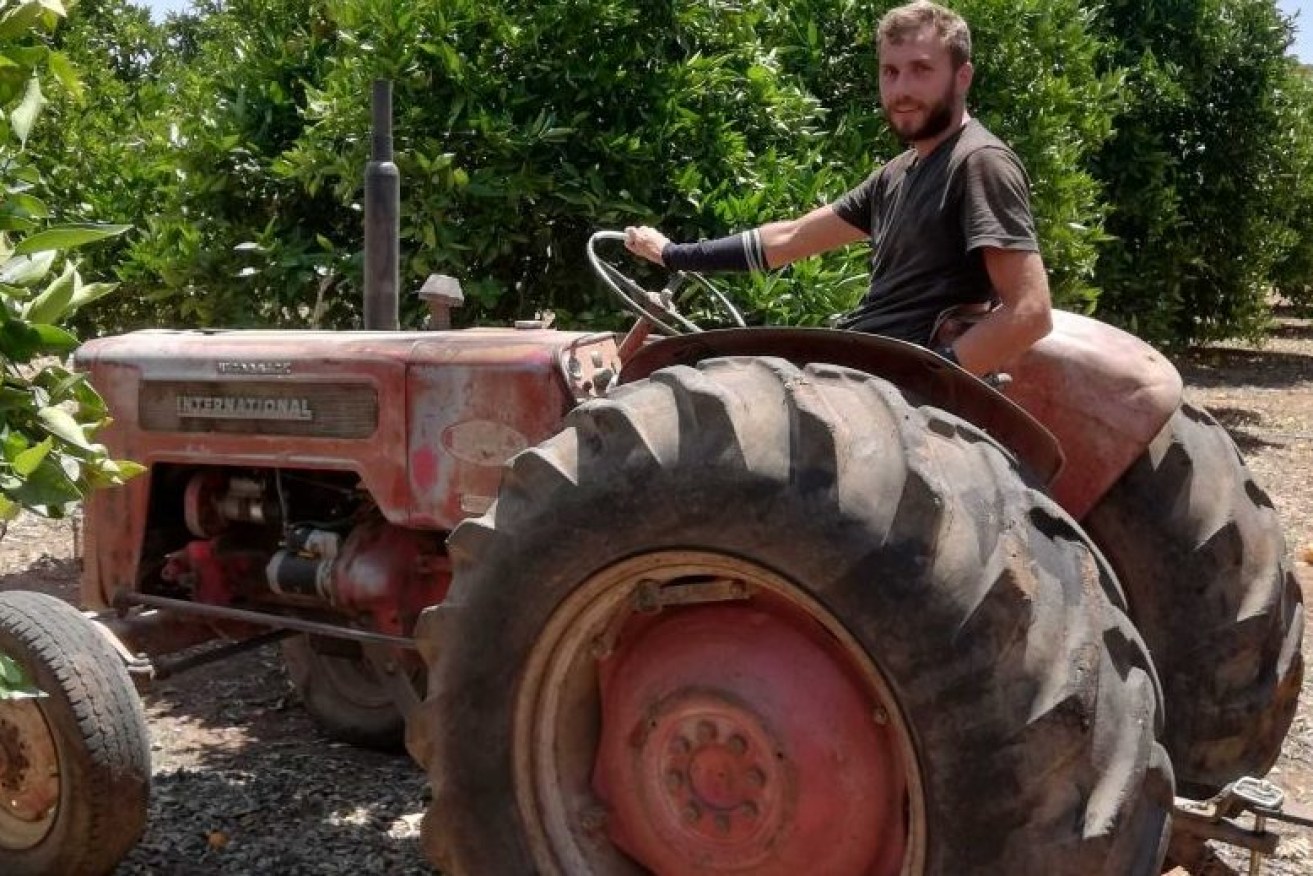
Jan Spacek has been travelling around Australia and working on farms since late last year. Supplied
The fruit and vegetable industry has warned that crops may be left to rot in fields because of a major shortage of accommodation for backpackers who pick the produce.
Growcom, the peak industry body in Queensland, said many hostels and caravan parks, where backpackers usually stayed in farming towns, had closed their doors in response to coronavirus.
Some young travellers told the ABC they had resorted to camping illegally in forests and on rural land and were sleeping in their cars because of the lack of accommodation.
Lasse Ortmann had been travelling the world before COVID-19 abruptly disrupted his working holiday.
“Until this point I have really enjoyed my trip. Hopefully after the crisis I can keep on travelling,” he said.
Far from his home in northern Germany, Ortmann is in Bridgetown, three hours south of Perth.
But for him and the backpackers he has met in Australia, finding a roof for the night is nearly impossible.
“We were homeless. All the hostels, caravan parks, even the free caravan parks are closed,” he said.
“So we stayed illegally in the forest; it was the only possibility we had at this time.
“We felt pretty desperate because we didn’t know where to go, we didn’t know what we should do next.”
Like many young international travellers, Ortmann has been employed at cattle stations and watermelon and pumpkin farms to comply with his working holiday visa requirements.
Holiday makers and seasonal workers are crucial to ensuring fruit and vegetable farmers have enough labour to plant and pick their crops.
The Federal Government has announced it will allow backpackers to extend their stays in Australia to help meet the agricultural labour demand.
Concerns some crops won’t be harvested
But the horticulture industry said there was nowhere for many of those travellers to sleep, prompting warnings about the supply of winter fruit and vegetables in the coming months.
“We need to acknowledge there is some risk that a lack of accommodation could mean that some crops don’t get harvested,” said Growcom spokesman Richard Shannon.
He said while many accommodation options such as hostels and caravan parks were closed, supply was even tighter because the Commonwealth announced that, in a bid to protect regional communities, backpackers would also have to self-isolate for 14 days before they started work.
“We need to distance ourselves personally from one another; that means that less people can live in the same sorts of arrangements we had previously, and that just reduces the number of beds that are available,” Mr Shannon said.
“We’ve seen plenty of rough camping, people sleeping in cars, pulling up wherever they can get access to at least some facilities like toilet blocks.
“I am concerned. I think it’s indicative of there being a great amount of disruption in the rest of the economy.”
Shannon said he understood why some hostels and caravan parks had closed and he called on governments to help solve the problem.
Farming communities urgently looking for solution
Citrus grower Judy Shepherd, who farms at Gayndah, three-and-a-half hours northwest of Brisbane, said without appropriate accommodation for backpackers, some fruit and vegetables might not be picked.
“There’s always a concern that getting enough staff at the right time in a harvest is difficult; this year it’s even more difficult because of the new restrictions around travel,” she said.
“There is a risk some crops may not be harvested.”
Shepherd said farming communities were urgently trying to find a solution.
“Trying to assist farmers to develop programs to take more [backpackers] than they would normally accommodate on their own farms, there’s a lot of problems around that issue,” she said.
“Another solution is potentially setting up temporary large-scale accommodation centres in towns that could cover the overflow from the parks, could provide some security for backpackers, and also offer isolation areas should someone become ill.”
That would be a huge relief for backpackers like Jan Spacek from the Czech Republic, who is trying to find farm work in New South Wales.
He said the stress of looking for employment and a place to sleep was taking its toll.
“I would become homeless if there are no people who would help me, because I have no shelter or a place to stay,” Spacek said.
“I would be just completely without anything in the land I am a stranger.
“It’s a situation you don’t wish upon anyone; it’s just a hard situation and I have to handle it in some way.”
– ABC / Caitlyn Gribbin


